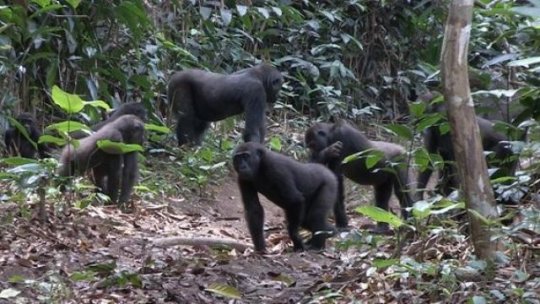Social behavior of western lowland gorillas

A new study published in the journal Proceedings of the Royal Society B: Biological Sciences reveals one of the enigmas related to the social behaviour of the western lowland gorilla (Gorilla gorilla gorilla) in the heart of the African equatorial rainforest. These primates show a dynamic social structure -individuals change frequently between families- with a high degree of tolerance and peaceful coexistence among the members, according to the new article which counts on the participation of the experts José Domingo Rodríguez Teijeiro, Magdalena Bermejo, Guillem Molina-Vacas, from the Faculty of Biology and the Biodiversity Research Institute of the University of Barcelona (IRBio).
According to the authors, this social behaviour may have played an important role in the evolutionary story of the species, easing the exchange of information and a better exploitation of trophic resources. However, this social dynamics may have worsened the impact of some infectious diseases in the population of gorillas, experts warn. In this context, epidemic Ebola virus outbreaks, which affected the primate population in Congo between 2002 and 2004, caused the disappearance of 95 % of this ape, causing this species to be in critical danger of extinction according to the Red List of threatened species by the International Union for the Conservation of Nature (IUCN).
In the new study, carried out in the Ngaga Forest in the Republic of the Congo, counts on the participation of German Illera (Great Apes Conservation/Research Odzala-Lossi and SPAC gGmbH, Republic of the Congo), Giovanni Forcina, Rubén Bernardo-Madrid, Eloy Revilla and Carles Vilà (Doñana Biological Station EBD-CSIC) and other experts of the University of Rennes (France).
For More: https://www.sciencedaily.com/releases/2019/02/190206115559.htm

